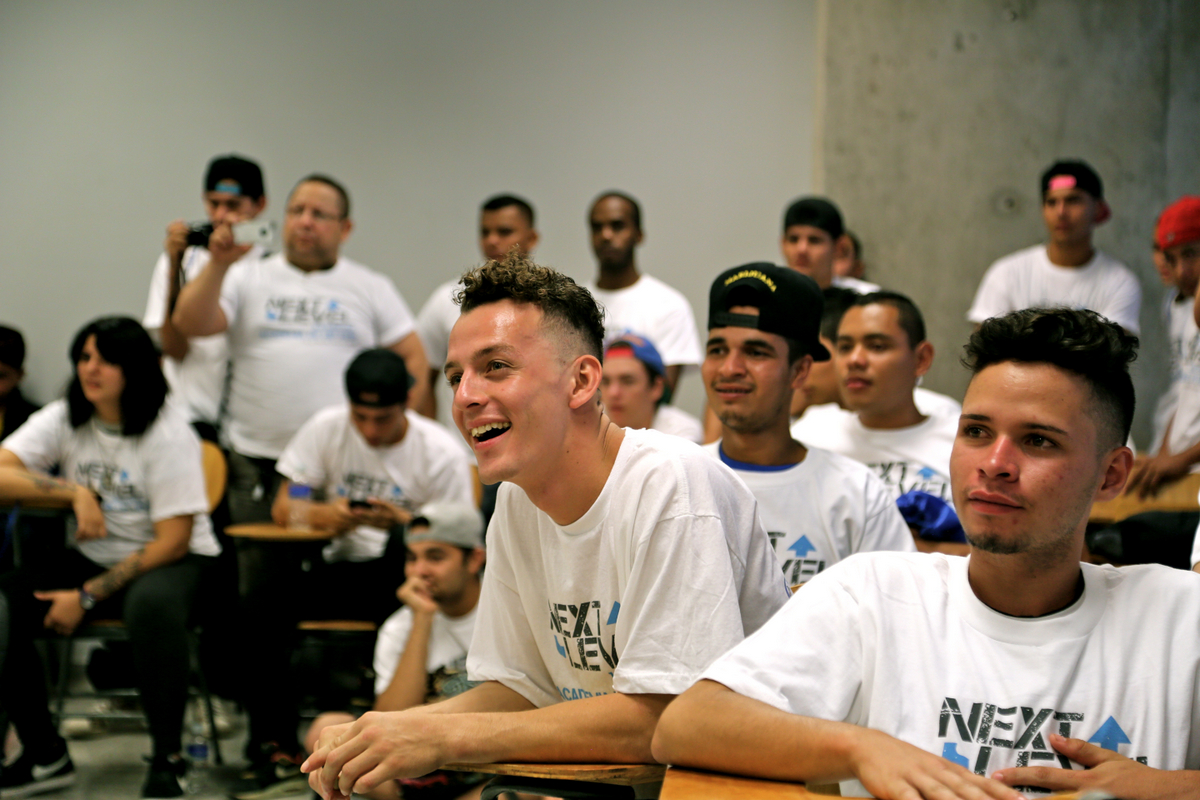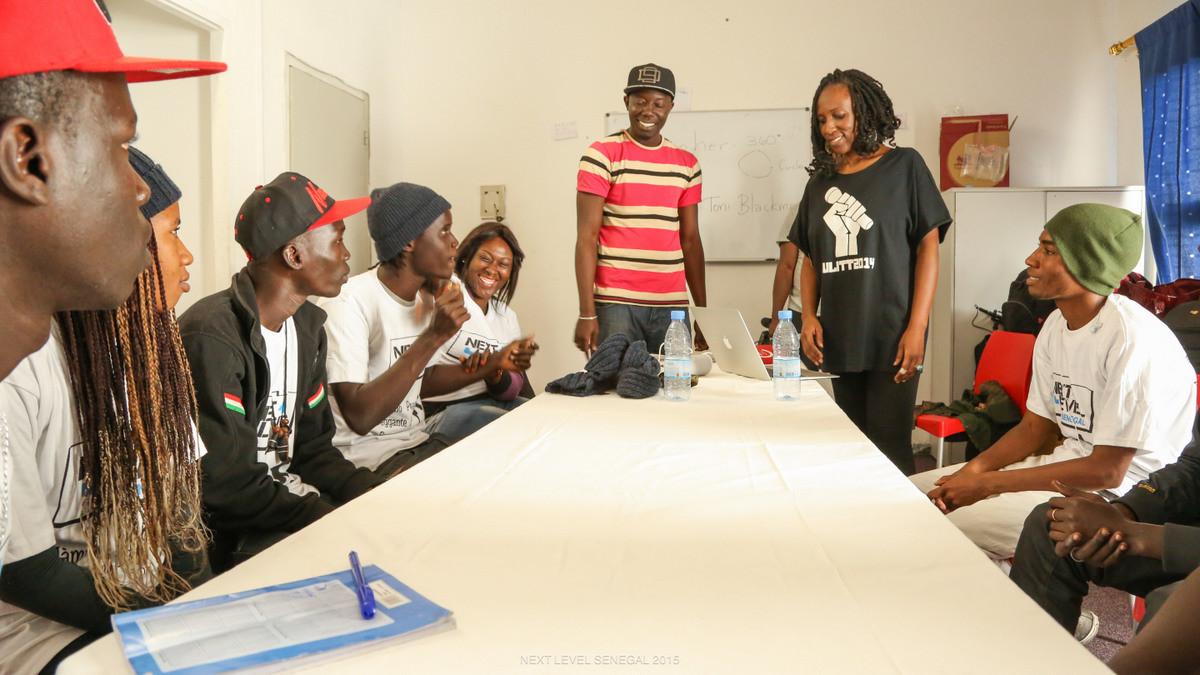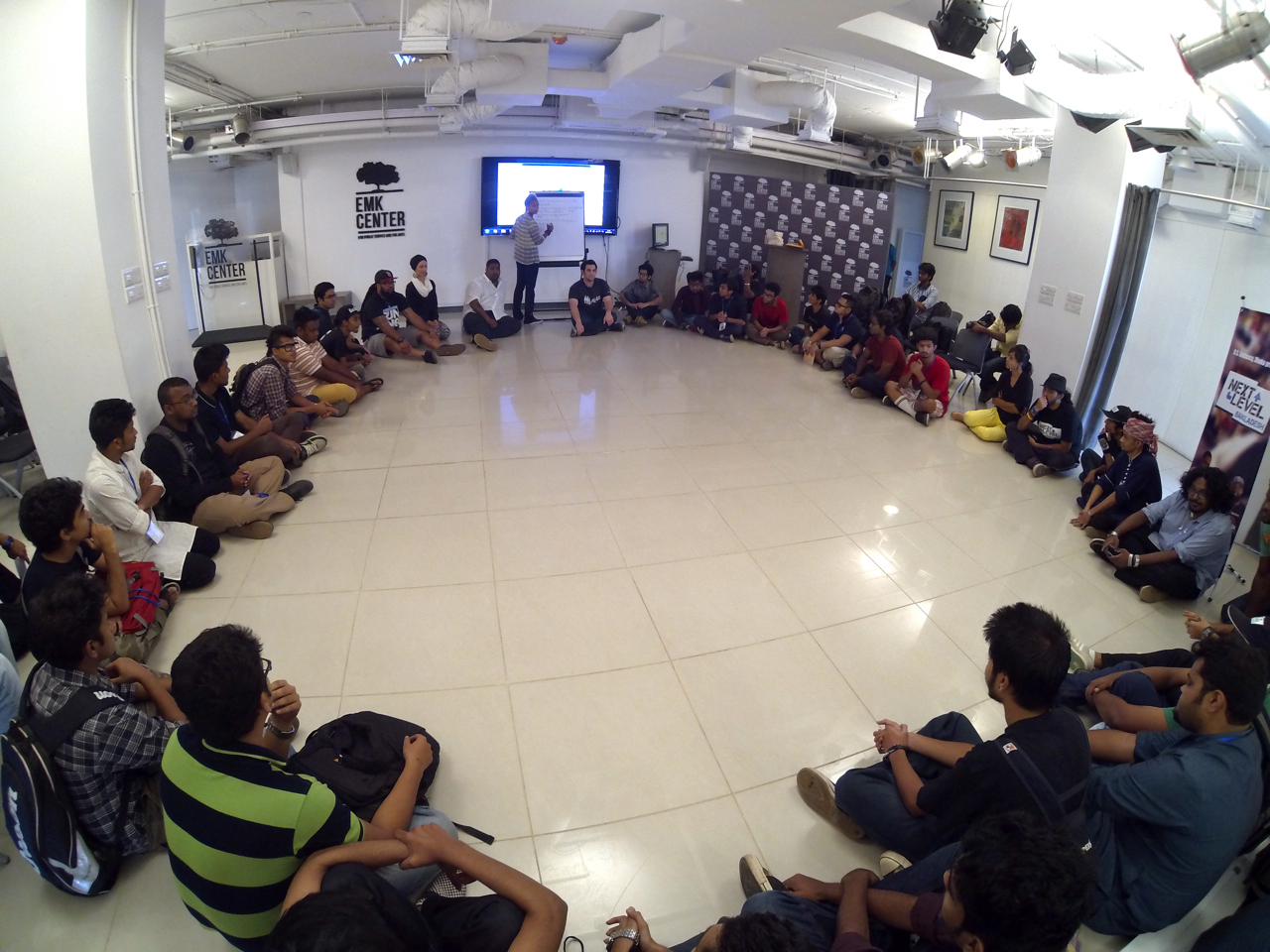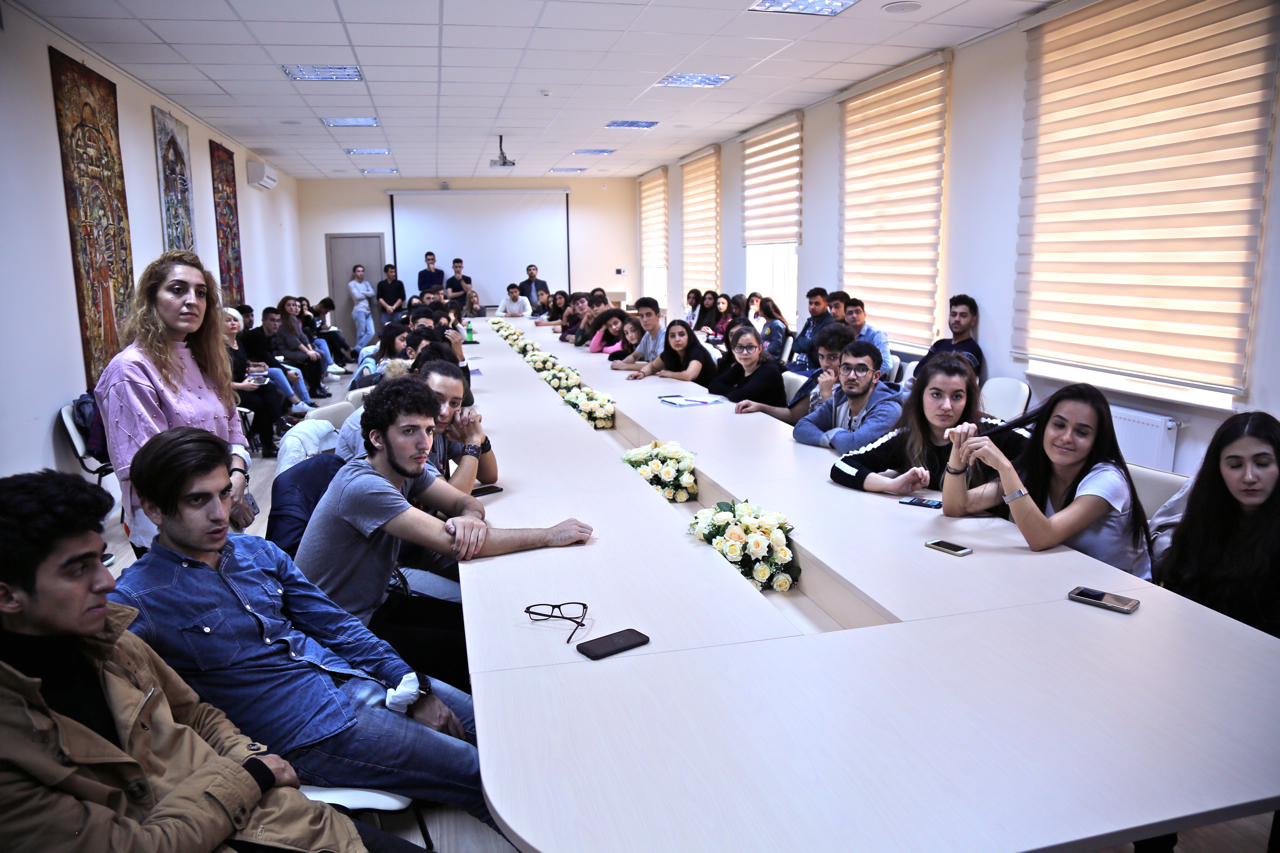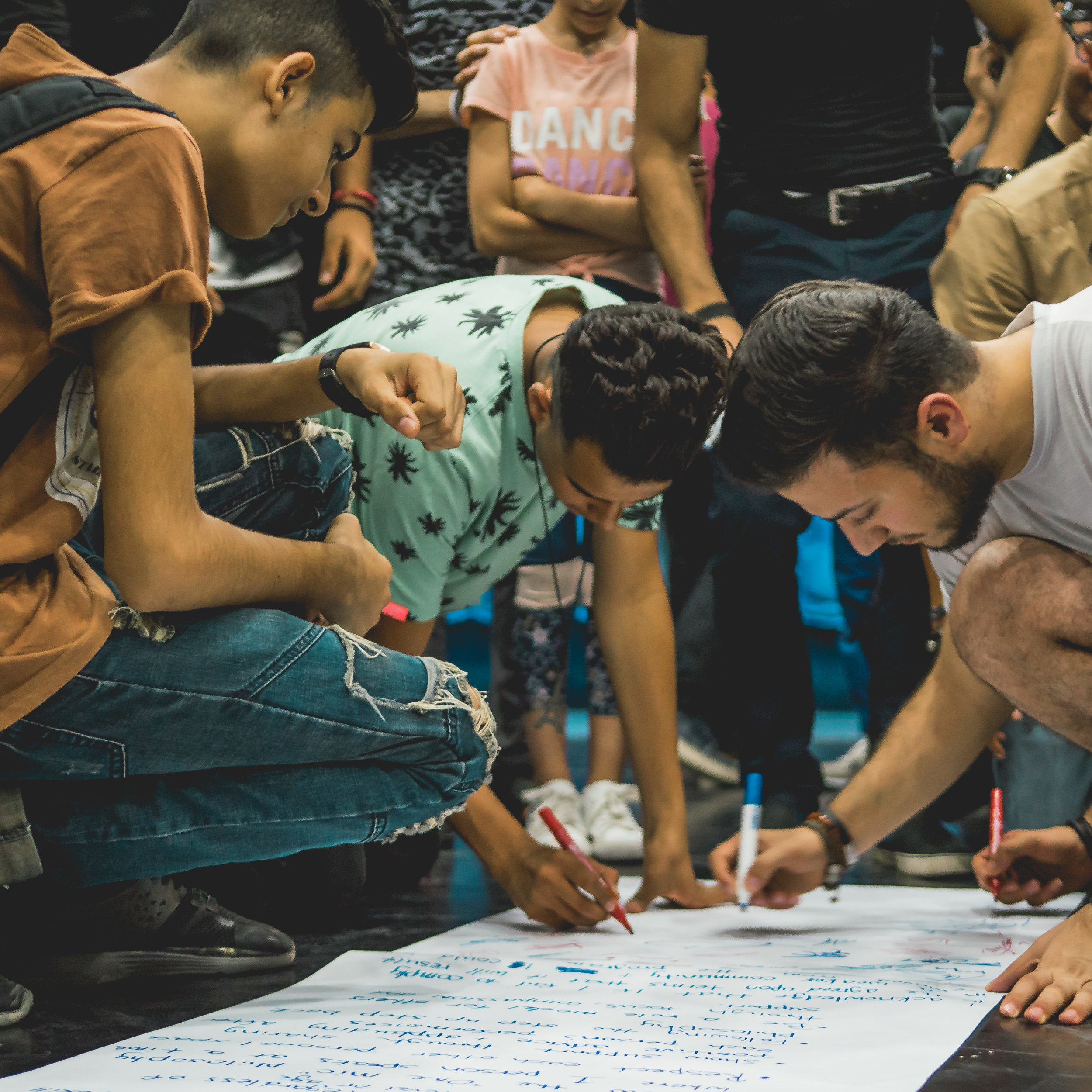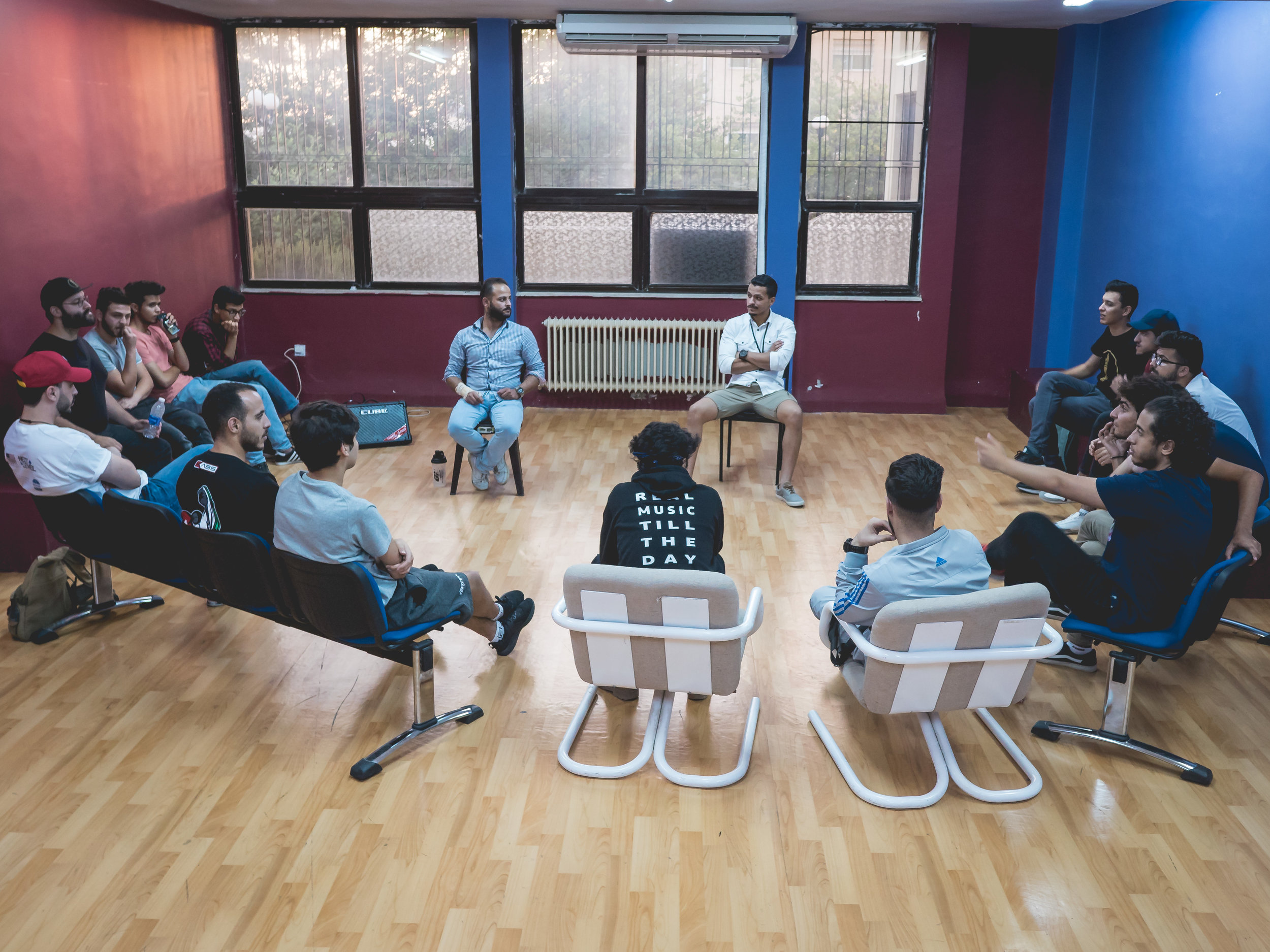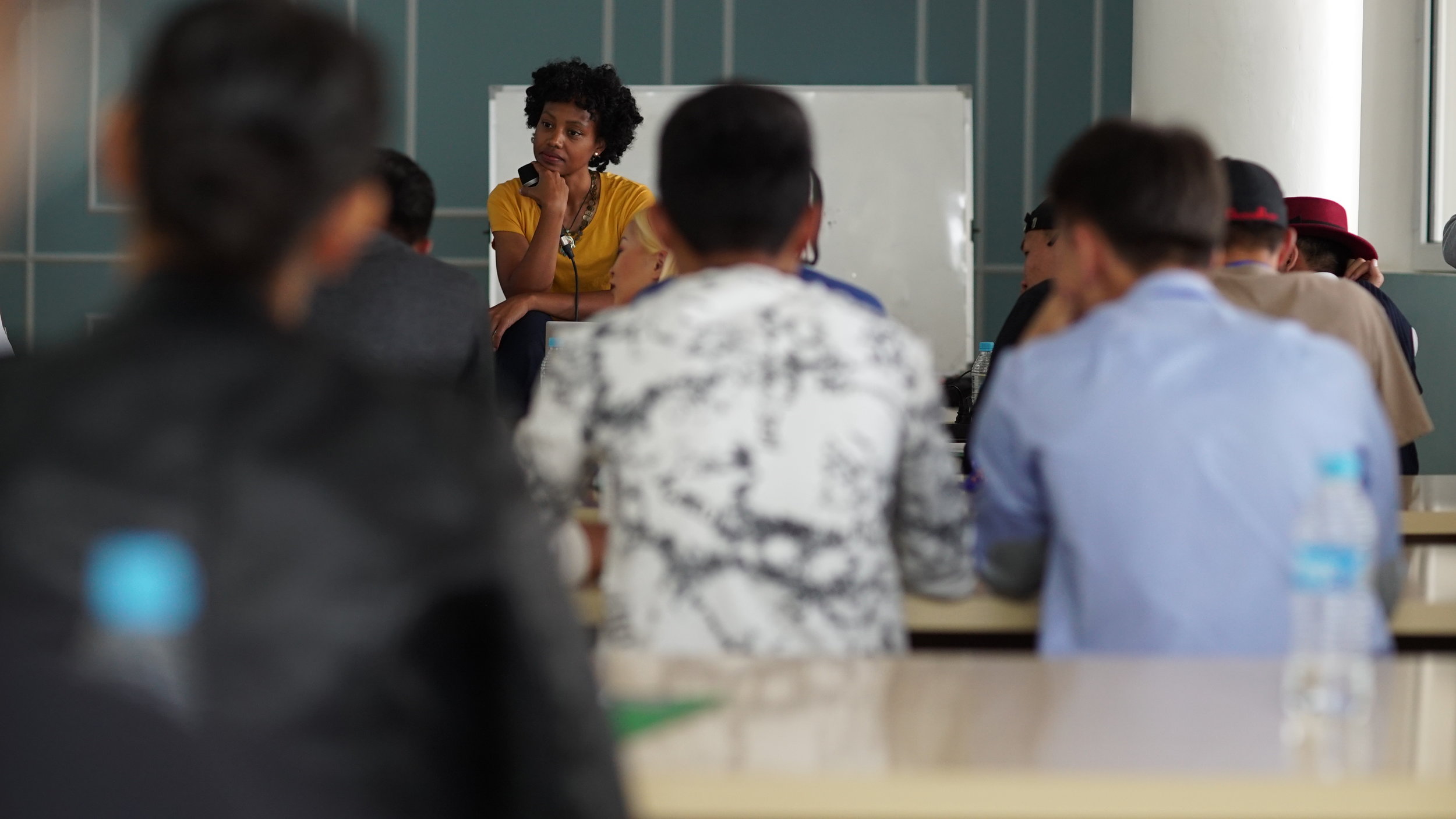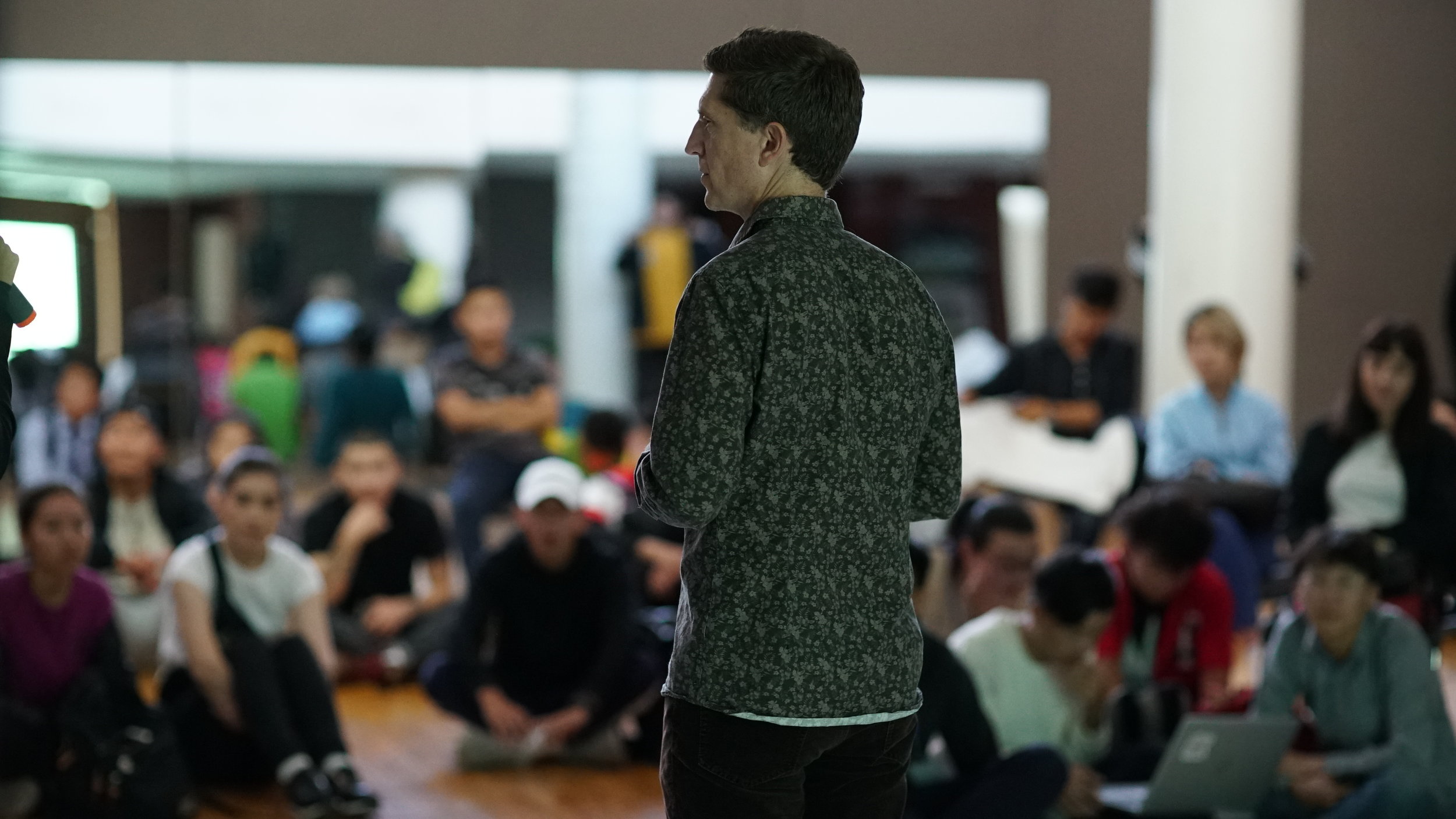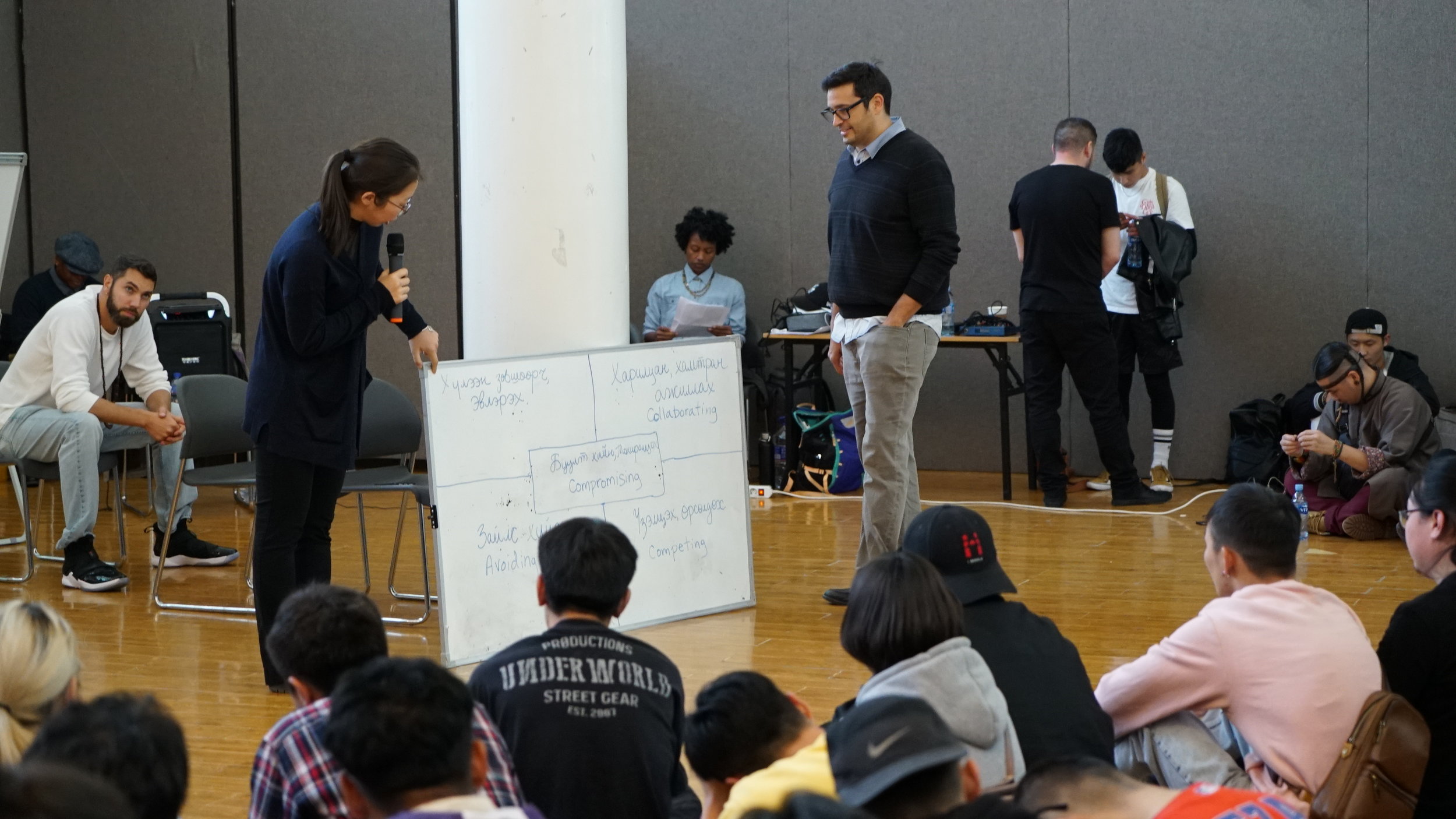Next Level and Conflict Transformation
Hip hop’s very existence can be understood as a form of conflict transformation. When DJs and beatmakers battle they transform physical conflict into sonic conflict; when b-boys and b-girls (breakdancers) challenge each other, their aggressive moves replace fistfights with dance; when MCs diss each other they release their anger into rhyme; when aerosol writers create murals they claim territory through art rather than by force. Since hip hop emerged in the 1970s countless young people have been drawn to it precisely because it offers ways to transform the conflict in their lives.
When in 2013 the State Department’s Cultural Programs Division put out the call to non-profit organizations to create what would become Next Level, conflict was a central theme. As the original statement of work explained, the program was intended to develop “programming to engage young people and effectively convey conflict resolution strategies through hip hop and urban arts.” Following this directive we have developed a philosophy of conflict transformation. We take the holistic view that conflict is simply a part of life, something that cannot be eradicated and is not necessarily negative; we believe conflict should be acknowledged and understood, harnessed when it can be productive and transformed into artistic self-expression.
This transformation begins by addressing internal conflict. Addressing internal conflict requires self-understanding. Self-expression goes hand in hand with self-understanding. Many times it is only when we try to express how we feel that we really understand ourselves, and art can be a powerful manifestation of our internal states. These states can be joy or serenity or contentment, but often what compels artists is internal conflict. And when conflict is externalized through art, it can begin to transform inner struggles. In turn, artistic expression can be a constructive way to engage and ultimately transform conflicts with others, for it can foster mutual understanding and creative collaboration that transcends language and crosses cultural divides.
Next Level’s workshops put conflict transformation into practice. This happens in many ways, whether through writing exercises that allow participants to express their deepest struggles in rhymed rap or through dance routines that sublimate aggression. We have also developed, in consultation with conflict experts, group exercises that foster thoughtful reflection and productive discussion about the nature of conflict in everyday life. As we have seen time and again, hip hop offers a distinctive, effective, and powerful means to address and transform conflict in the lives of young people around the world.
